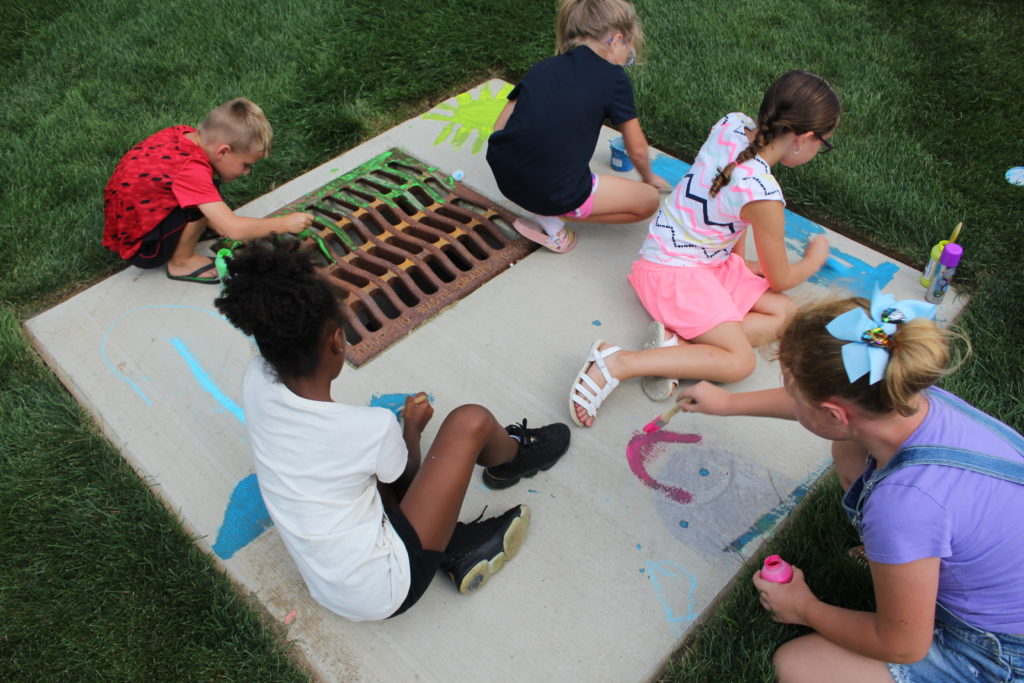How To Reduce Stormwater Pollution
Stormwater pollution can be caused by a variety of everyday activities. Pollution can be caused by activities such as washing your car, using chemicals on your lawn, and even improperly disposing of pet waste. So, what can you do to reduce stormwater pollution this spring?
AUTO MAINTENANCE
Oil, grease, asbestos, and other toxics from spilled fluids often make their way into our storm drain system. Once they have made it to the storm drains they are not treated before reaching our waterways—making our waterways unsafe for wildlife and people. Here are some helpful tips to prevent this from happening…
- Use a local car wash to prevent oil, grease, and other toxics from washing into the storm drains. When washing at home, vehicles should be on the lawn, which can absorb unwanted runoff.
- Repair leaks and dispose of used auto fluids and batteries.
- Avoid hosing down your garage floor and driveway; instead, sweep regularly, pick up the debris, and place it into the appropriate trash receptacle.
LAWN CARE
Unnecessary use of fertilizers contributes to water pollution when washed off and into our storm drains. Fertilizers can lead to the formation of algal blooms. Algal blooms cause a loss of oxygen in the water posing a direct threat to aquatic life. Follow these tips when caring for your lawn this spring…
- Do not apply fertilizers before rain is forecast.
- Use fertilizers and pesticides sparingly. Use lawn care items as directed; always keep them away from ditches, gutters, and storm drains. Store them in a covered area, off the ground, to prevent contact with water.
- Don’t sweep, rake, or blow yard waste into the street or storm drain.
- Make your landscape water-friendly with green infrastructure. Consider installing permeable pavers, rain barrels, French drains, and bioswales. When you make an effort to control the flow and sinking of water in your landscape, you’re helping to keep harmful items out of the storm drain system as well as capture water naturally.
PET WASTE
Pet waste is another contributor to stormwater pollution that can degrade our water quality. During rainfall, any pet waste left on lawns and sidewalks will wash into storm drains. The waste contains bacteria, parasites, and viruses that will end up flowing directly into local waterways where they can harm human health and the environment. How do we prevent this?
- Be sure to pick up your pet waste and place it in the appropriate trash receptacle.
- Pick up pet waste before it rains.
When it comes to reducing stormwater pollution we all need to be part of the solution. If you see someone disposing of anything down a storm drain or directly into any body of water or ditch, obtain a license plate number or address and report it to:
It’s a Crime: (614) 871-5322, online: www.itsacrime.org
Report the release of any material that impacts public health or the environment, including chemicals and petroleum products to:
Ohio EPA 24-hour hotline: (800) 282-9378
If in Franklin County, you can report any sewage-related pollution to Franklin County Public Health 24-hour hotline: (614) 525-3965, or report a problem online.
You can also contact us about any non-emergency water pollution and we will contact the appropriate agency or you can find additional information and resources on reporting stormwater pollution through the Be The Change for Clean Water website.

